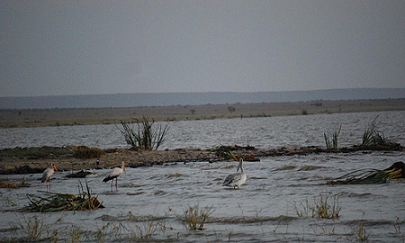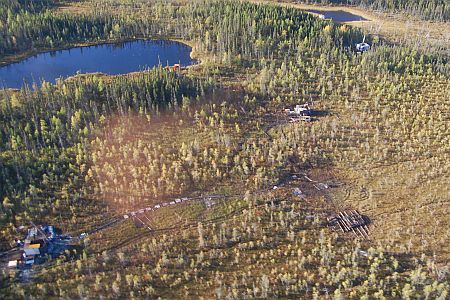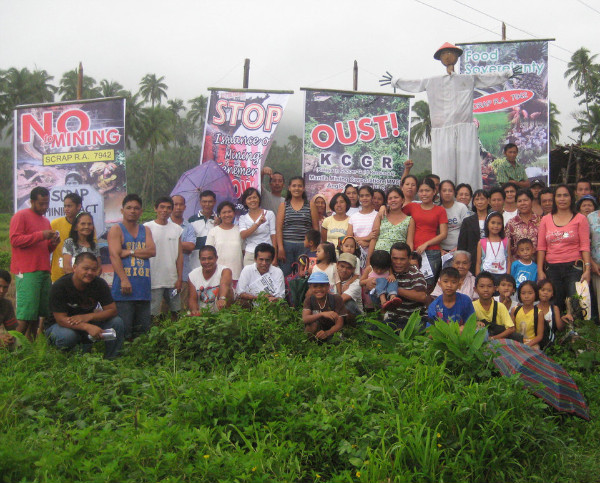Jan 21, 2010 – The Indian government’s grant of the final environmental clearance to a Korean giant firm, allowing it to acquire 3,000 acres of ‘forest lands’ in the eastern state of Orissa, has prompted a fresh spate of protests from more than 4,000 families that will be affected by a proposed mining project.
Pohang Steel Company (POSCO) has been trying to set up operations in Orissa since 2005, which have been stalled since then due to a rash of sometimes violent protest movements, prominent among them being Posco Pratirodh Sangram Samiti (PPSS or Committee for Resistance against POSCO), against the company’s land acquisitions for the project.
The PPSS held its latest protest on Jan. 13 after the steelmaker obtained the much awaited clearance early this month. The group is composed of local indigenous or tribal folk whose combined population is estimated at 22,000.
In June 2005 the state government and POSCO signed a Memorandum of Understanding allowing the company to set up a steel plant .
POSCO, which has the largest foreign direct investment in India so far, at 51,000 crores (11 billion U.S. dollars), plans to build a 12-million-tonne steel plant with a ‘captive’ port in Jagatsinghpur district of Orissa, an integrated township with water supply infrastructure from two important barrages. The project is expected to generate some 45,000 jobs.
India’s government policy on mining, cautious till 1997, was amended in 2006 to allow full direct investment by foreign companies. It was seen as a means to ‘developing’ the country.
Since then, international firms like De Beers and Broken Hill Properties, both with controversial human rights and environmental company practice records in countries like South Africa and Papua New Guinea respectively, have acquired huge prospecting rights in Orissa as well as Madhya Pradesh state in central India.
Alongside China’s demand for iron and steel, fuelled by its furious pace of development , iron ore production in India jumped from 59 metric tonnes in 1993-94 to 154 million tonnes (mt) in 2005-06, bauxite from 5 mt to 12 mt in the same period, while coal-production increased from 267 mt to 437 mt.
Yet, this huge spiraling production has contributed a mere 2.5 percent to the country’s gross domestic product in the last 10 years and yielded much smaller revenues for the government than it should have, given its panoramic increase, according to the Centre for Science and Environment, a well respected New Delhi-based organisation that is campaigning against exploitative mining.
The Orissa state government’s no-holds-barred entry to POSCO gives the company 600 mt of iron ore at half its market price, enabling it to make significantly handsome profits. This was based on a study conducted by environmental researcher and social activist Manshi Asher of the National Centre for Advocacy Studies (NCAS), based in Pune district in Maharashtra, located on the western coast of India.
The government, which also gives the company tax-free status and incentives, will supply iron ore to POSCO at a discount of 2,000 rupees (approximately 44 U.S. dollars) per tonne, and allow it to export high-quality ore even while it imports low-alumina content ore.
Brazil and China had earlier turned down POSCO’s proposed deals due to the company’s refusal to buy iron ore at market prices. The company is now facing protests in Uruguay over land acquisition for a carbon sequestration project.
In Orissa, the company will also receive approximately 150,000 million litres of water, affecting water supply to the nearest city of Cuttack and irrigation to four districts. It will likewise get an unspecified number of ‘captive’ coal mines and over 6,000 acres of land (comprising the newly cleared forest areas for the Korean firm), excluding an unspecified acreage for establishing transportation, water and ‘any other project-related infrastructure facilities’, as per its agreement, according to Asher.
Official statistics indicate that merely 438 acres of the land involved is private, displacing 471 families. Government records, however, do not reflect that most of the approximately 3,000 acres of land belonging to the forest department have been under cultivation for generations, or used by communities for fodder and non-timbre forest produce.
Repeated calls by IPS to K.C. Sahu, who is in charge of mining operations in POSCO’s Indian arm at Bhubaneshwar, drew no response.
There are also environmental concerns over deforestation, destruction of coastal and estuarine ecosystems including the destruction of a natural drainage system by the construction of a captive port.
The Garhirmatha turtle sanctuary in Orissa, home to hundreds of nesting Olive Ridley turtles every year, faces significant risk by the construction of POSCO’s captive port.
The PPSS is also worried about the port affecting the livelihoods of nearly 30,000 fisherfolk.
“There are mangroves where the port is planned, and salt mounds that serve to stop seawater flowing in,” says Prashant Paikare, spokesperson of PPSS. ” What about natural disasters because of their destruction ?” he asks.
In 1999, a devastating cyclone killed thousands and displaced as many on this coastline, destroying 275,000 homes.
Concerns about health also hound the project. According to the NCAS study, the local tribal population also faces serious health problems, especially among mine workers in the region. Many others, having lost their lands and forests, appear to have migrated, with their whereabouts unknown.
“We will offer mass resistance,” warns Paikare. “We still don’t believe the rehabilitation package that the government has said POSCO must fulfill will take care of all the issues involved.”
POSCO has yet to announce the components of the package, but locals news reports said the company was willing to offer land to those who would be displaced by its project. No other details were given, however.
Soon after the PPSS’s Jan. 13 protest, the government of Orissa announced it was convening a rehabilitation and periphery development advisory committee. Steel and mines state secretary A.M.R. Dalwai said he would now focus on the rehabilitation package.
The Indian government’s environmental approval to POSCO comes with 15 riders, including compulsory afforestation; that lands remain with the government and that no damage be caused to flora and fauna. It also specifies that the project cannot be undertaken without the consent of the tribal community living in the area.
The proposed mining site in Keonjhar district, which will supply POSCO its iron ore, is already reeling under the negative effects of large-scale mining activity.
Protected against land alienation under India’s constitution because of its being a tribal area, Keonjhar still faces constitutional violations by even state-run organisations like the Orissa Mining Corporation, taken to court for land illegalities.
“We cannot have development which is only about extraction,” says activist Rosemary Vishwanath, believing it impoverishes the affected communities and destroys their culture.

 2 February 2010
2 February 2010 In the Spring edition of the EF! Action Update, see how King Coal is being confronted – chimneys climbed, conveyors locked-on to, mines invaded, machinery occupied, ecotage, and more.
In the Spring edition of the EF! Action Update, see how King Coal is being confronted – chimneys climbed, conveyors locked-on to, mines invaded, machinery occupied, ecotage, and more. 26th January 2010
26th January 2010 January 19, 2010
January 19, 2010